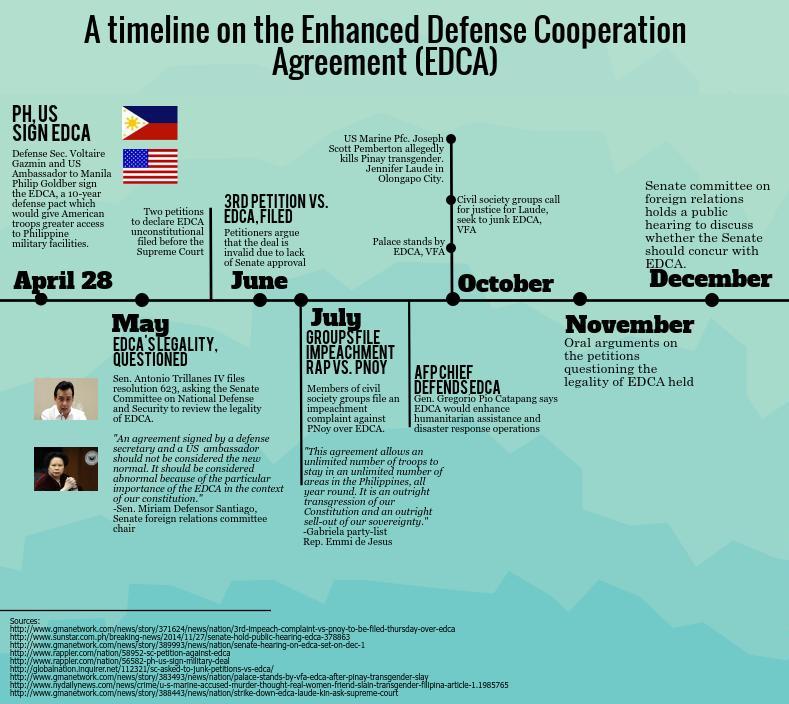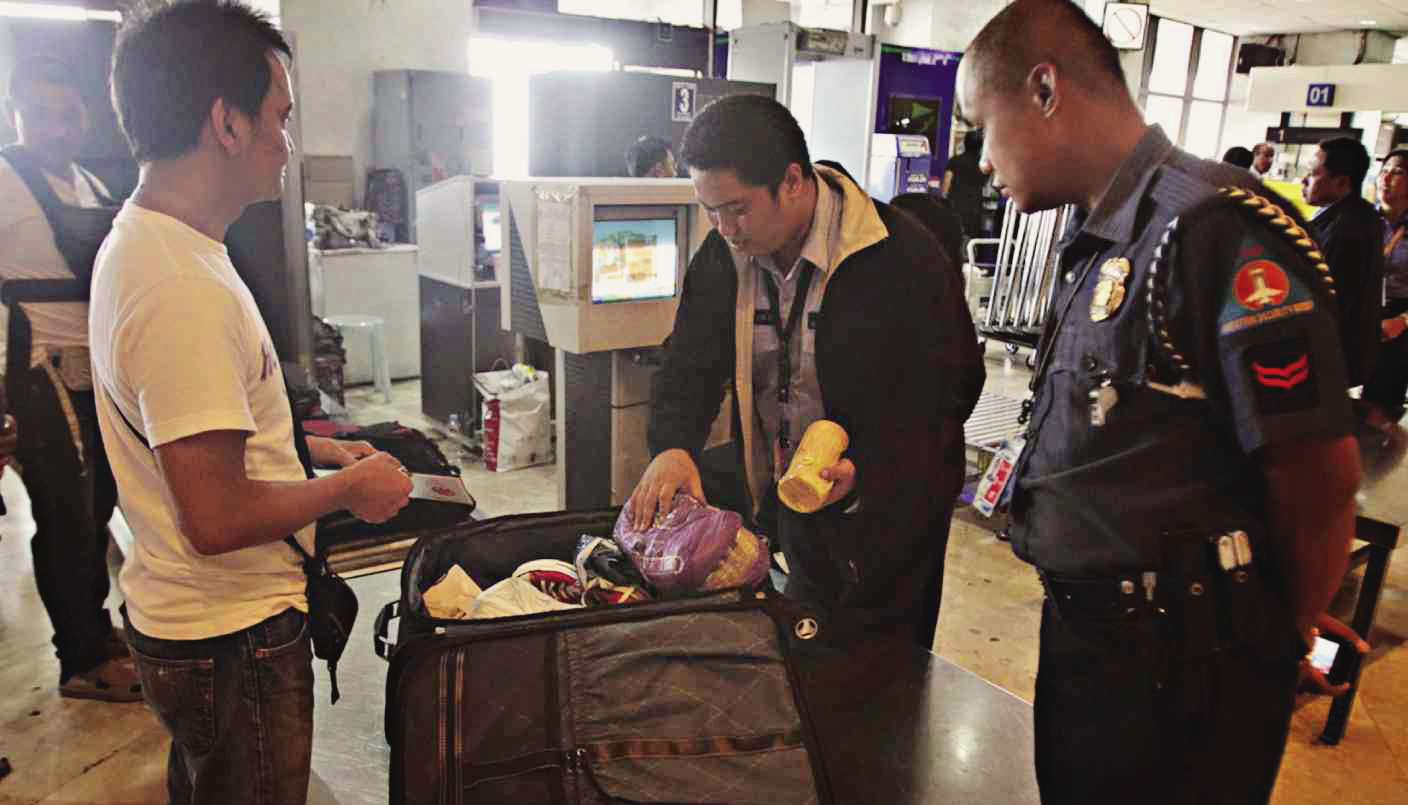BY JHESSET THRINA ENANO
As the year comes to a close, the Enhanced Defense Cooperation Agreement (EDCA) between the Philippines and the United States sits quiet over issues on its constitutionality.
On Dec. 1, Senator Miriam Defensor-Santiago, chairperson of the Senate committee on foreign relations, held a public hearing to discuss whether the agreement is “necessary, beneficial and practical” and whether it requires Senate concurrence.
While EDCA does not authorize the establishments of US bases, according to the Department of Foreign Affairs, it allows US military access in so-called “agreed locations.” Defensor-Santiago said the rights provided by the agreement amount to the “maintenance of military bases,” which requires the approval of the Senate.
Signed in late April, the agreement aims to strengthen the implementation of the Mutual Defense Treaty (MDT), which allows the presence of US troops in the country, in line with the US-PH Visiting Forces Agreement (VFA). It has an initial term of 10 years, but is renewable.
Implementing agreement or new policy?
Before the Senate hearing, several petitions have been filed before the Supreme Court (SC) questioning the constitutionality of the agreement. Some petitioners include lawyer Harry Roque, Vice Chairperson of the Center for the People’s Empowerment in Governance (CenPEG) and University of the Philippines professor Roland Simbulan, and former senator Rene Saguisag.
During the oral arguments in November, Acting Solicitor General Florin Hilbay clarified in the SC that EDCA does not require Senate concurrence as it is merely an implementing agreement of the MDT and VFA. He said it would enhance our own Armed Forces’ capabilities in disaster and humanitarian operations.
However, Roque argued otherwise, stating that EDCA is a new policy on its own, as it clearly authorizes prepositioning and storage of defense and humanitarian assistance and disaster relief equipment, supplies and material.
The agreement also allows the US to build structures inside bases to be used by its troops.
In this context, the lawyer argued that it must be treated as a treaty, not merely an executive agreement.
No guarantee on US aid
Despite the deal, there is no guarantee that the US will help the Philippines in its maritime disputes, particularly that in the West Philippine Sea, according to Hilbay.
“What is important is that it entangles the US with the interests of the Philippines,” the government’s chief counsel said in a Philippine Star report.
During the Senate public hearing, Defense Secretary Voltaire Gazmin claimed that EDCA served as a “deterrent” against external security threats, such as those from China.
However, it has long been made clear that the US maintains a neutral stance over the territorial conflict between the Philippines and China.
Criticism over US troops presence
The presence of US forces in the country has long been criticized by several groups. This opposition resulted to the refusal of the Senate to ratify the lease renewal of the US bases under then president Corazon Aquino in 1991. The decision led to the removal of the bases a year later.
Today, under President Benigno Simeon Aquino III’s administration, the Armed Forces of the Philippines expressed its plans on allowing US access to up to five of its bases, despite EDCA’s claim on the non-establishment of bases in the country.
In a paper submitted to the Senate committee on foreign relations, Professor Simbulan of UP Manila stated that EDCA is a “kind of negotiated subservience” to the US and is “patently one-sided.”
Among issues on sovereignty, the opposition to US military presence in the country is also rooted in several criminal cases that involve US servicemen. In the landmark Subic rape case, a Filipina named “Nicole” accused Lance Corporal Daniel Smith of raping her inside a moving van in 2005, while fellow US soldiers cheered him on.
Smith was then stationed in Subic Bay, Olongapo under the VFA. Though initially found guilty, the Court of Appeals reverse an earlier decision, acquitting Smith of criminal charges in 2009.
This October, another US Marine named Joseph Scott Pemberton is accused of killing Jennifer Laude, also in Olongapo, where the soldier is deployed as part of military exercises between the Philippines and the US.
In the most recent proceedings, the Regional Trial Court has granted his motion to suspend trial, following Pemberton’s pending petition with the Department of Justice to reverse the findings of the case.
US warships and crew were also involved in the grounding and destruction of marine life in the restricted area of the Tubbataha Reef last year


